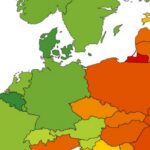“The need to be authentic was greater than the fear to die.” These powerful words defined Muhsin Hendricks, the world’s first openly gay imam, who was shot dead in broad daylight in South Africa at 57.
Hendricks’ murder in Gqeberha has sent shockwaves through the LGBTQ+ community. A fearless advocate for queer Muslims, he founded The Inner Circle in 1996 to help others reconcile their faith and sexuality. His inclusive mosque, Masjidul Ghurbaah, was a beacon of hope for those pushed to the margins.
His work was radical, challenging centuries-old interpretations of Islam that denied LGBTQ+ existence. While mainstream religious bodies condemned his killing, his death serves as a grim reminder that being openly queer, even in a country with constitutional protections, still carries immense risk.
South African police are tracking down his killers, but was this a targeted hate crime? Officials say it’s too soon to tell, yet history speaks for itself. For many queer people of faith, Hendricks was a hero—someone who stood firm in his truth despite the threats.
His legacy will live on, not just in the safe spaces he built, but in every queer person who dares to live authentically. Rest in power, Muhsin.
You may also like
-

Ten Years of Balkan LGBTQIA: A Decade of Fighting Borders, Discrimination and Silence
Created in Brussels by volunteers from across the Balkans, Balkan LGBTQIA has spent ten years
-

Queens of the South: When Nice Turns Carnival into Queer Celebration
On 27 February 2026, Place Masséna in Nice will shimmer a little brighter. Lou Queernaval,
-

Cœur de pirate at AB: the runaway pop of a queer icon lands in Brussels
A major figure in Francophone pop and an outspoken voice in the queer community, Cœur de pirate
-

Safer on Paper, Not in Reality”: ILGA Warns of Rising Anti-LGBTQIA+ Violence in Belgium
Belgium still ranks among Europe’s most protective countries for LGBTQIA+ people on paper – yet
-

Six Charming Princes for Three Castles: LGBT Couples Rebuilding France’s Fairy‑Tale Landscape
First, there were princesses in towers waiting for some vaguely straight prince on a horse.

